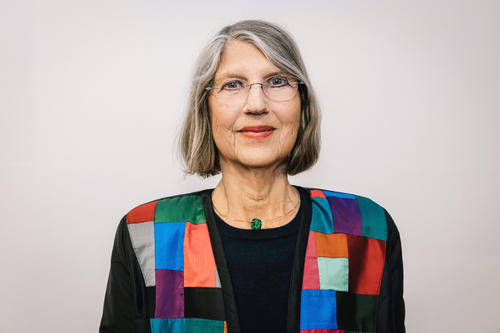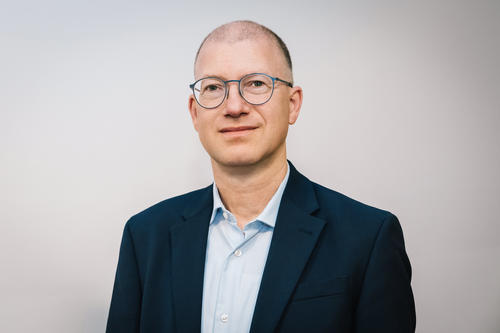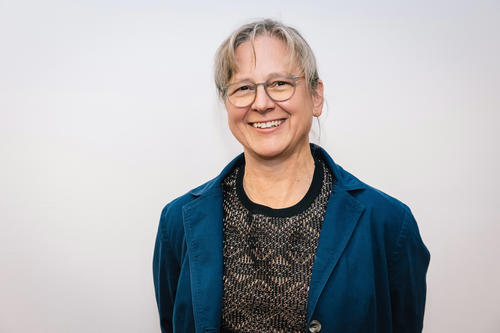Making a Difference: A Doctorate Opens Doors Far Beyond the Ivory Tower
Every year thousands of young researchers begin their doctoral studies at Freie Universität Berlin, and every year the university recognizes doctoral alumni who are celebrating twenty-fifth (silver) and fiftieth (golden) anniversaries of having completed their doctorates. We spoke with three individuals who reached these milestones this year.
Usually people who complete their doctoral thesis receive a great deal of praise for their achievement. However, outside the academic community, they might encounter slightly snide remarks such as, “You can’t do much with that in real life though, can you?”
Such “ivory tower” clichés are easily countered by the numerous people who have received doctorates from Freie Universität Berlin over the years and have brought their expertise into diverse professional settings outside academia.
Dr. Hannelore Börgel, economist, received her doctorate in 1974
Dr. Hannelore Börgel, an economist who submitted her doctoral thesis on “Dependent Development and Inflation in Brazil” in 1974, has to smile whenever she hears someone express this prejudice against PhD holders. For many years Börgel, a native of Osnabrück who earned her degree in economics and political science at Freie Universität Berlin, has been using her knowledge and experience for work in economic cooperation and development.
After completing her doctorate, Börgel went to the German Institute of Development and Sustainability, where she earned another postgraduate degree. After working in several positions including one at the German Federal Ministry for Economic Cooperation and Development (BMZ, Bundesministerium für wirtschaftliche Zusammenarbeit und Entwicklung) as a speechwriter for the federal minister, Börgel set up her own business as a reviewer and consultant in the field of cooperation and development. She says that she made a conscious decision to go to Berlin and attend Freie Universität Berlin. Berlin was “in” at the time, and Freie Universität was known as the university where recent student reforms had had a big impact. She is also thankful that the university provided her with an exchange scholarship for the University of Minnesota, USA, as well as a doctoral scholarship.
There was never a doubt in Börgel’s mind that she would complete a doctorate. Her mother was an important role model in this respect. She continued to run the family’s large business during the years of Germany’s economic miracle after her husband had died. She instilled in her daughter the attitude that “of course women can do everything that men can do.”
For decades Börgel has been traveling to countries in Asia, Africa, and South America, leading intercultural teams on site. Her clients include the BMZ, the German Agency for International Cooperation (GIZ, Deutsche Gesellschaft für Internationale Zusammenarbeit), and the Credit Bank for Reconstruction (Kreditbank für Wiederaufbau) as well as other political foundations and nongovernmental organizations.
Börgel holds lectures, regularly gives interviews to newspapers and radio stations, and has published several books about her experiences. She has traveled to Afghanistan almost every year since 2002. She notes that after the Taliban came to power in 2021, many things have become more difficult there, especially for women: “In small towns, far from the large cities, women often come up to me and say, ‘Please don’t forget us. Come back and help us.’”
Officially, women in Afghanistan are forbidden to work outside their homes or even go to the market without a male chaperone. Higher education is also taboo. Börgel says, “What I find particularly moving is that not only women, but also many men approach me, asking for advice and support because they want to try to do everything possible to quietly improve the situation of their wives, sisters, and daughters to enable them to participate more in commerce and society. I see this as a type of silent resistance.”
Börgel was last in Afghanistan in July 2024, writing a study for a nongovernmental organization on building resilience in rural Afghanistan. It is apparent that Afghanistan is very close to her heart, and she has a major complaint about Western perceptions of the country. She says, “When people talk or write about Afghanistan, they usually emphasize the corruption in the country, stating that aid projects ultimately fail because of it.” Börgel stresses, “Things are not so clear cut.”
She says that in the north, where Germany has been very involved in projects, there are noticeable improvements. “For example, fewer women are dying during or after childbirth because German resources were used to build roads that enable patients to reach hospitals faster and more safely than before.” These types of changes might seem negligible to Westerners, but they often have a big impact. Targeted reconstruction projects such as these continue to be very important.
Does she feel safe as a woman in Afghanistan, and is she treated with respect when she speaks (almost exclusively) with men about development projects? Börgel emphasizes, “That never played a role in Afghanistan. I speak with everyone on an equal footing,” as all the partners in local Afghan organizations are interested in working together constructively.
The celebration in honor of silver and golden doctoral anniversaries, which is organized annually by the Alumni Office of Freie Universität, always welcomes individuals from many different disciplines. Given the nature of the celebration, it also brings together individuals from two generations separated by about twenty-five years. Among the alumni who earned their doctorates in 1999 are two who focus on the diversity of plant and animal life in their professions. Through their work they both make significant contributions to drawing public attention to the issue of wildlife conservation. We find this particularly fitting as it coincides with the Year of Biodiversity being featured in 2024 at Freie Universität.
Dr. Michael Stech, biologist, earned his doctorate in 1999
When most people think of moss, they think of the pretty, velvety green carpet found under trees in the forest. However, the world of mosses – Bryophyta is the scientific term – is more diverse. For example, mosses can contribute to the climate and function as a habitat for smaller organisms in large cities, if they are allowed to grow in specific locations such as on green roofs or the facades of buildings.
Biologist Dr. Michael Stech, 54, conducts application-oriented research on these “hidden champions” of the plant world. Why is he so fascinated by them? Well, for one thing, they support biological diversity as habitats for bacteria and fungi themselves. For another, mosses also benefit the climate. Stech, a senior researcher at the Naturalis Biodiversity Center in Leiden, the Netherlands, explains, “Mosses store water and dampen noise. They also filter CO2 out of the air.” Stech and his family have been living in the picturesque Dutch city of 130,000 inhabitants since 2007. At first Stech worked as an assistant professor at the University of Leiden; later he took a position at Naturalis, which is both a research institute and museum.
Stech grew up near Bonn, and even as a child he was extremely interested in plants. Whereas other kids might collect stickers or toys, Stech was obsessed with nature conversation. In high school he chose biology as an advanced course and then studied biology at the University of Bonn.
After he earned his degree, he moved to Berlin for his doctorate. He explains, “For my doctoral thesis I was working on DNS sequencing, which was still relatively new at the time. I used it to research relationships between moss species and decipher their genetic material. I found the best working conditions for this at the Institute of Biology – Systematic Botany and Geography of Plants at Freie Universität Berlin.” He smiles and adds, “Of course, I also really enjoyed being in the large city. A lot happened in my private life, too. I met my wife, and our daughter was born there.”
Today Leiden is the family’s home. Stech enthusiastically says that working at the Naturalis Biodiversity Center is ideal for him: “I can work as a scientist and with my work at the museum I can teach people how important biological diversity is in the animal and plant worlds.” And with a wink, he adds that after seventeen years in the Netherlands, he can speak enough Dutch to explain things in the country’s main language.
Dr. Nicola Gaedeke, biologist, received her doctorate in 1999
When asked whether she has never regretted her decision to complete a doctorate, Dr. Nicola Gaedeke says, “Earning a doctorate was worthwhile for me because it enabled me to experience how wonderful it felt to completely immerse myself in a topic and in doing so, to gain a complete understanding of the depth of the topic.” She completed her doctoral thesis at the Max Planck Institute of Molecular Plant Physiology in Potsdam and at Freie Universität Berlin. Her doctoral thesis, “In Search of Plant Anion Channels: Molecular Cloning, Functional Characterization, and the Analysis of Their Patterns of Expression,” sounds quite complicated. But for Gaedeke the meticulous study of plant genetics was incredibly motivating.
As the director of the Berlin Nature Conservation Academy of the Nature Conservation Foundation (Stiftung Naturschutz), Gaedeke, 56, no longer works as a researcher, but she still works with plants and other organisms worth protecting. She coordinates training workshops and seminars for people who work full-time or as volunteers in nature conservation, so they can acquire information about self-organization, regional seeds, or invasive species.
The Nature Conservation Foundation awards a nature conservation prize every year. In 2023 it went to a researcher at Freie Universität Berlin; Sophie Lokatis was recognized for her “Blooming Campus” initiative.
Gaedeke, who grew up in Hamburg, has gone through several changes in her professional life. After first training as a medical technical assistant, she studied biology in Göttingen. Following her doctorate and a postdoctoral position in Potsdam, she moved with her husband, a medical researcher, to Salt Lake City. Her husband worked on a research project at the university there, and their oldest daughter was born. Gaedeke says, “I was looking for meaningful work, and the National Library of Medicine was looking for a research librarian who could teach database research. I was interested in the field, and this was my chance.”
Back in Berlin Gaedeke continued working in the field of bioscientific database research and began working as a freelancer by organizing workshops and courses for scientists. Thirteen years later she wanted to try something different, preferably combining nature conservation and education. To gain an impression of the work done in the Nature Conservation Foundation, she completed a year of federal volunteer work there before she was hired. She has never regretted this latest professional move. As she says, “I work in a wonderful team where everyone has the same goal: to promote diversity in nature and in society.”
Mareike Knoke



